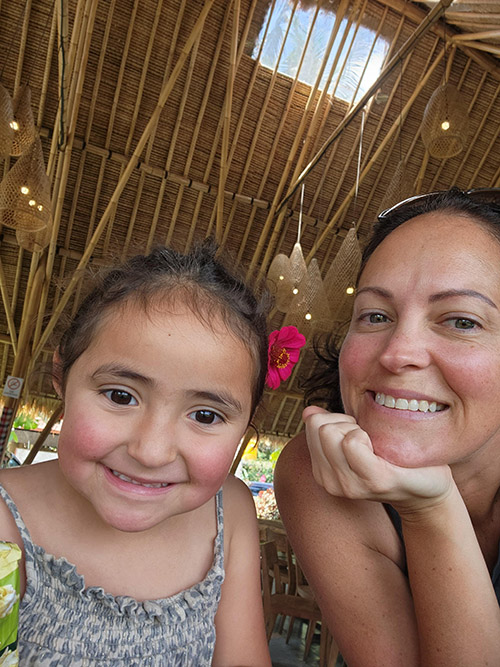Meet Kristen Ella, a proud Yuin woman with strong family ties to La Perouse. She rejoined the ACI earlier this year in a new role focused on innovations in Aboriginal heath and wellbeing.
For more than a decade, Kristen has worked in various roles across NSW Health, most recently as Statewide Coordinator for the Aboriginal Mental Health Workforce Training Program at the Ministry of Health.
In her newly established role as Associate Director, Aboriginal Health and Wellbeing, Kristen provides an important voice for Aboriginal people and health issues at the ACI executive level.
Kristen leads a committed team focused on innovations that support healthcare for Aboriginal people. This includes developing and implementing new models of care that are culturally safe and appropriate for Aboriginal communities.
We spoke to Kristen about her vision to drive positive change within our healthcare system.

What Country do you live on and what is your favourite way of connecting to Country?
I live on Darkinjung Country (I am a Yuin woman) on the NSW Central Coast, and I connect to Country through the ocean. I’m a saltwater girl, so I need to live close to the beach.
Tell us about your previous role and what attracted you to this new opportunity at the ACI?
I was based in the Mental Health Branch as the Statewide Coordinator for the Aboriginal Mental Health Workforce Training Program. This was a program I completed myself in 2012. It aims to increase the number of Aboriginal people working in our mental health workforce, by giving them an opportunity to gain a clinical qualification with the skills to support Aboriginal and non-Aboriginal people.
The word "wellbeing" in the title drew my interest to this new role and rejoining the ACI. In 2019, I was the Manager of the ACI's Aboriginal Chronic Conditions Network, so I was already familiar with the organisation and its purpose. Aboriginal people’s way of being is not based on a Western system. We live in a Western world, but it’s innate in us that we feel differently; we are spiritual beings, connected to many animals, waters and lands. I feel that focusing on the wellbeing aspect will allow for a more holistic approach to Aboriginal health at the ACI.
What areas will you focus on to drive innovation in Aboriginal health and wellbeing across NSW?
We need to prioritise integrating Aboriginal ways of being and doing into all aspects of healthcare. We need to embed equity across the system, and then we may have better health outcomes in Aboriginal communities.
What is something you do each day for your own wellbeing?
I meditate every morning, some days longer than others. Meditation keeps me grounded and connected. I also go for a walk in my lunch breaks when I’m working from home. My route always takes me past the ocean. Sometimes it even includes a swim, which is my way of cleansing.
What advice would you offer to clinicians to better care for and collaborate with Aboriginal people and communities?
- Learn the basics and educate yourself on Aboriginal people and culture.
- Understand the impacts of colonisation; understand what it means to be from the Stolen Generations; what it means to not be from the Stolen Generations; and what it means to be forced to assimilate.
- Ask that burning question to any Aboriginal person with whom you feel comfortable. We prefer you to ask us than just assume. Asking us helps to educate you.
Tell us something people may find surprising about you.
I’ve climbed to Mount Everest Base Camp and let me tell you, altitude sickness is not fun. I’ve also trekked 100km through the Blue Mountains for a fundraiser in the middle of winter. Both were great experiences!
Learn more about the Aboriginal Chronic Conditions Network and the Chronic Care for Aboriginal People team.